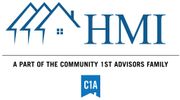
Q: We live in a small homeowners’ association and everyone knows everyone else. Is it possible for the association to impose fines but have the members of the fining committee remain anonymous?
–J.P. (via email)
A: No. Both the Homeowners’ Association Act, Chapter 720, and the Florida Condominium Act, Chapter 718, lay out the process associations must follow in order to impose fines or common facility use right suspensions as punishment for violating the provisions of the governing documents or the rules of the association.
The process requires written notice to the individual to be fined or suspended, and the opportunity for a hearing before a committee. In the condominium context, there is no minimum number of members that must serve on the committee, but the committee must be made up of other unit owners who are neither board members nor persons residing in a board member’s household. In the homeowners’ association context, the committee must be made up of at least three members appointed by the board who are not officers, directors, or employees of the association, or the spouse, parent, child, brother, or sister of an officer, director, or employee.
The board of directors must appoint the members to serve on the committee at a properly noticed board meeting. The minutes of the board meeting must reflect the actions taken by the board, including who was appointed to the committee. The minutes are considered an association record open to inspection by the owners. Those who attend the meeting or request a copy of the minutes afterwards will know who was appointed to the committee.
Additionally, since the individual who is to be fined is allowed to attend and participate in the committee hearing, the members of the committee could not be anonymous.
Accordingly, while I can understand the concern that some owners have in serving on the fining and/or suspension committee, in the context of an association, such information could not be kept confidential.
May 10, 2015 by Joe Adams, Becker & Poliakoff. Mr. Adams joined Becker & Poliakoff, P.A. in 1987. He concentrates his legal practice on the law of community associations, primarily representing condominium, cooperative and homeowners' associations, as well as country clubs, mobile home communities and amenities associations such as marinas and golf courses. He has been very active in community association legislation and rule making, and has drafted several pieces of legislation affecting community associations that have been adopted by the Florida Legislature.
With more than 40 years experience in Association Management and Property Management, Hara Management, Inc. has the expertise needed to efficiently manage your Homeowner’s or Condominium Association; or manage rental properties and apartment communities, while providing the highest level of service to Boards and Owners. Contact HMI’s General Manager Rick Michaud, or visit HMI online to learn more about their menu of services today.
About the Business
Have a question? Ask the experts!
Send your question

